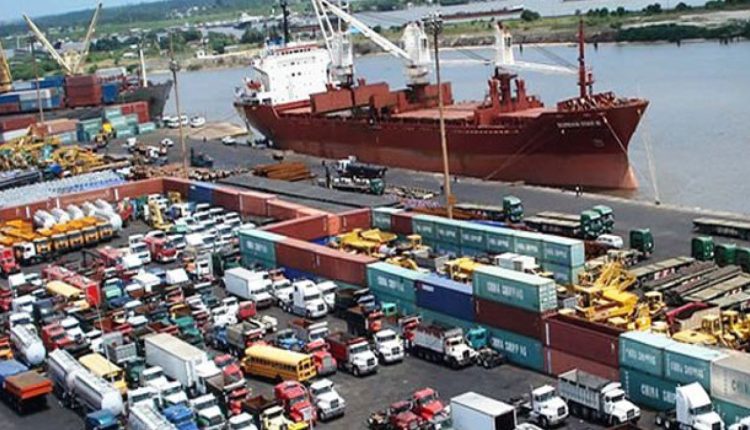The Federal Ministry of Transport has said arbitrary charges and undue delay had become key
problems militating against the port concession exercise.
problems militating against the port concession exercise.
The Permanent Secretary, Federal Ministry of Transport, Mr. Mohammed Bashar, made the disclosure in Lagos in a message at a one-day conference on “Review of the Port Concession Agreement”.
The News Agency of Nigeria (NAN) reports that the Nigerian ports were concessioned to 26 private terminal
operators in 2006.
operators in 2006.
Bashar, who was represented by the Director of Shipping in the ministry, Alhaji Sani Galandanshi, said the
challenges of port concession included arbitrary charges, undue delay to cargo clearance.
challenges of port concession included arbitrary charges, undue delay to cargo clearance.
He said other challenges were abuse of the concession agreement and other general oppressive tendencies as observed by stakeholders.
“It is these negative tendencies and to address them, that in February 2014, the Federal Government appointed the Nigerian Shippers’ Council as the Interim Port Economic Regulator.
“The Port Economic Regulator was established for effective regulatory regime in the Nigerian ports for the
control of tariffs, rates, charges and other related economic activities.
control of tariffs, rates, charges and other related economic activities.
“The interim regulator will address the negative impact of the port concession activities on the economy and to
realise the optimal benefits derivable from port reform.
realise the optimal benefits derivable from port reform.
“The regulator will as well carry out other related incidental activities,” Bashar said.
The permanent secretary said the conference would critically analyse areas of ambiguity, duplication of
contractual obligations and failure to clearly separate responsibilities and accordingly, proffer solutions.
contractual obligations and failure to clearly separate responsibilities and accordingly, proffer solutions.
Bashar said the conference would go a long way in realisation of dividends of port concession by all parties.
He, however, explained that port concession have had positive improvements in the quality of port services,
infrastructure development, improved safety of cargo and increase in cargo throughput.
infrastructure development, improved safety of cargo and increase in cargo throughput.
Bashar said the concession exercise was meant to create efficiency and quality of service rendered at ports and
encourage investments in the port sector through Public Private Partnership (PPP).
encourage investments in the port sector through Public Private Partnership (PPP).
He said concession was meant to reduce costs of doing business at the ports, increase revenue generation for
government, create employment and promote competition in port services.
government, create employment and promote competition in port services.
Also speaking, Mr. Benjamin Dikki, Director-General, Bureau of Public Enterprises (BPE), said the concession
operation in Nigeria was basically the efforts of both the Nigerian Ports Authority (NPA) and the BPE.
operation in Nigeria was basically the efforts of both the Nigerian Ports Authority (NPA) and the BPE.
Dikki said the failure of the passage of the Port and Harbour Bill and Transport Commission Bill led to the
establishment of Port Economic Regulator to checkmate the activities of both the terminal operators and other stakeholders.
establishment of Port Economic Regulator to checkmate the activities of both the terminal operators and other stakeholders.
He said the on going conference should be able to look if there was anything left out from the concession
agreement and to also find out if there would be punishment to be meted out to achieve effective operations.
agreement and to also find out if there would be punishment to be meted out to achieve effective operations.
In a message, Mr. Hassan Bello, Executive Secretary of the Nigerian Shippers’ Council (NSC) called on key
players involved to come together to review the concession agreement periodically.
players involved to come together to review the concession agreement periodically.
Bello said that the Council was primarily concerned to see reduction in the costs of doing business in Nigerian
ports.
ports.
The executive secretary expressed the NSC’s readiness to transform the ports through its new port order which
revolved around introduction of electronic platform.
revolved around introduction of electronic platform.

